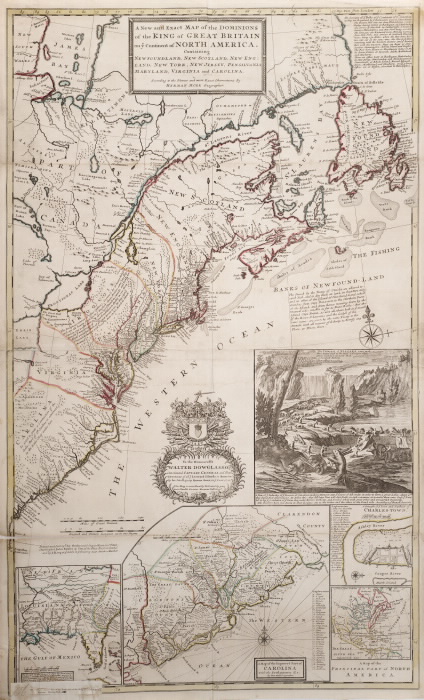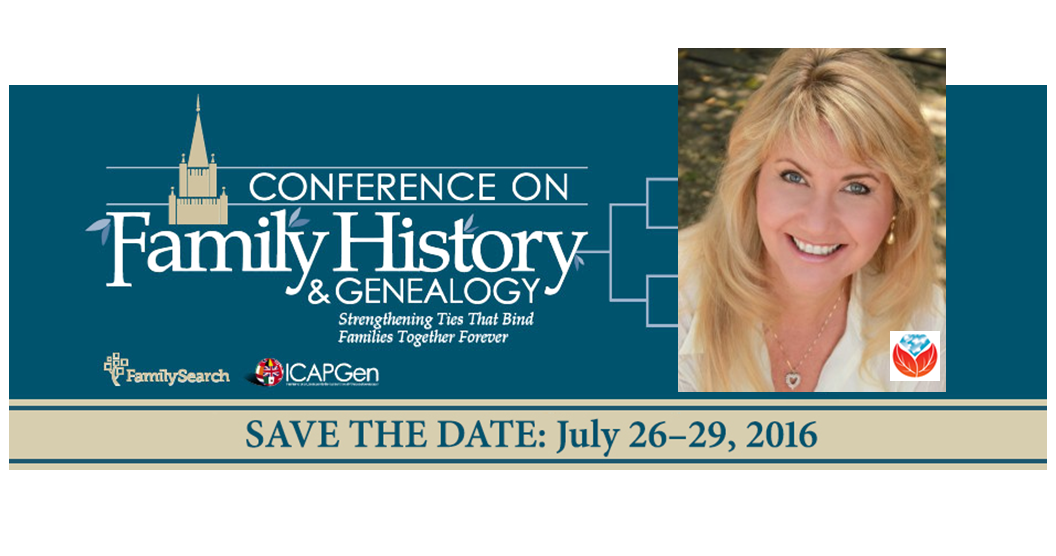by Lisa Cooke | Apr 9, 2015 | 01 What's New, Maps, Volunteer

The Beaver Map, 1715. By Special Collections Toronto Public Library. Flickr, via Wikimedia Commons.
Recently I’ve seen two calls for volunteers to help “georeference” old maps. Basically, you’re tagging the maps in a way similar to tagging photos of people on social media sites. This makes finding old maps online easier and more accurate. It also allows sites to overlay the old and new maps. “Some places have changed significantly or disappeared completely, creating a puzzle that reveals an exciting contrast,” explains the British Library.
These two sites are asking for volunteers:
The British Library Online Gallery. The British Library is asking for volunteers to help georeference 50,000 maps it’s put online. Go right to the site and you’ll see the invitation to help on the home page. You’ll also see that you can click on a tab to search maps that are already georeferenced! The British Library tells its volunteers: “Your name will be credited, and your efforts will significantly improve public access to these collections. Contributors can see the results of their work, as well as the progress of the pilot and other participants, and the top contributor will be publicly announced.”
David Rumsey Historical Maps. This mega-maps site is also looking for volunteers to help add locations to its online map collections. On the home page, click on the left where it says Georeferencer: Help Add Location to Maps.
We blog about maps a lot here at Genealogy Gems. To learn more about using old maps online and for genealogy, go to our home page and search on the Maps category on the lower left side of the page. Additionally, Genealogy Gems Premium members have access to full-length video classes like these:
Not a Genealogy Gems Premium member? Click here to become one!
by Lisa Cooke | May 24, 2015 | 01 What's New, Canadian, Digital Archives, images, Libraries, Memory Lane, Records & databases
 Do you have Canadian roots? Then Canadiana should be on your list of online resources searched regularly for family history information.
Do you have Canadian roots? Then Canadiana should be on your list of online resources searched regularly for family history information.
Recently Newswire.ca described Canadiana as “a digital initiative of extraordinary scale,…a joint effort of 25 leading research institutions, libraries and archives working together with the goal of creating Canada’s multi-million page, comprehensive online archive.” Its digital collections chronicle Canada’s past since the 1600s and most of its content is free.
What we especially noticed in a recent peek at this enormous Canadian digital archive:
- The Héritage Project. This FREE resource “aims to digitize, preserve and make accessible Canada’s archival materials for Canadians and the world. Héritage is also a pathfinder project to determine the best ways to organize and fund ongoing efforts to make all of Canada’s remaining documentary heritage accessible online.” Their large collection of genealogy materials so far includes immigration records, church records, land records, family histories, voters’ lists and more. Military history, government documents and aboriginal records are also well-represented. Tip: check back often! More is coming, like local and regional newspaper digitization and records of the Canadian Expeditionary Forces.
- The Canadiana Discovery Portal. This gateway to digital collections from 40 repositories points to 65 million pages! Sample subjects include Ontario genealogy and War of 1812 campaigns. This portal is also free to use.
- Early Canadiana Online, with 5 million images already and expected to grow to 16 million. This part of the website requires a subscription ($10/month or a year for $100) This is “a full-text collection of published documentary material, including monographs, government documents, and specialized or mass-market periodicals from the 16th to 20th centuries. Law, literature, religion, education, women’s history and aboriginal history are particular areas of strength.” The site describes itself as “the most complete set of full-text historical content about Canada, including books, magazines and government documents.” Tip: scroll down on the home page to click the Genealogy and Local History portal, but don’t ignore the rest of the site!
 Like this post? Here’s a few more posts you may enjoy:
Like this post? Here’s a few more posts you may enjoy:
If more posts like these are what you’re looking for, sign up for our free email newsletter. You’ll get Lisa Louise Cooke’s free Google Research e-book when you do! From our home page, enter your email in the sign-up box.
by Lisa Cooke | Jul 21, 2016 | 01 What's New, Conferences, FamilySearch
The BYU family history conference is coming up July 26-29, 2016 in Provo, Utah. I’ll be there! Will you? I hope you’ll come say hello.
I hope to meet many of you at Brigham Young University’s annual Conference on Family History and Genealogy in Provo, Utah, coming up on July 26-29, 2016. They’re keeping me busy during the first two days of the conference, when I will be teaching five lectures! Those presentations will include:
They’re keeping me busy during the first two days of the conference, when I will be teaching five lectures! Those presentations will include:
- Genealogical Time Travel: Google Earth is Your DeLorean. Get ready to experience old historic maps, genealogical records, images, and videos coming together to create stunning time travel experiences in the free Google Earth program. We’ll incorporate automated changing boundaries, and uncover historic maps that are built right into Google Earth. Tell time travel stories that will truly excite your non-genealogist relatives! You’ve never seen anything like this class!
- Get the Scoop on Your Ancestors with Newspapers. Yearning to “read all about it?” Newspapers are a fantastic source of research leads, information and historical context for your family history. Learn the specialized approach that is required to achieve success in locating the news on your ancestors. Includes 3 Cool Tech Tools that will get you started.
- Google Tools & Procedures for Solving Family History Mysteries. In this session we will put Google to the test. Discover Google tools and the process for using them to solve the genealogical challenges you face. You’ll walk away with exciting new techniques you can use right away.
- Soothe Your Tech Tummy Ache with These 10 Tech Tools. Are you sick and tired of navigating the countless tech tools available to help with your family history? The good news: You don’t need them all to accomplish your genealogy goals. The video session will soothe your suffering by simply focusing on these 10 technology tools that will help you bypass tech overload and get back to your genealogy research.
- Tablet and Smartphone Tricks, Tips and Apps. Tablets and smartphones are built for hitting the road and are ideally suited for genealogy due to their sleek size, gorgeous graphics and myriad of apps and tools. In this class you will discover the top apps and best practices that will make your mobile device a genealogical powerhouse! (iOS and Android)
WHAT: Brigham Young University Conference on Family History & Genealogy
WHEN: July 26-29, 2016
WHERE: BYU Conference Center, 730 East University Pkwy, Provo, UT
REGISTER: Click here for full conference information
Gems editor Sunny Morton will join me at the BYU family history conference in the vendor hall and in the classroom. She’ll be lecturing on researching collateral relatives (as indirect routes to direct ancestors); finding “relatively recent” 20th-century relatives; finding family history in Catholic church records; how to carefully consider your sources; and a hands-on workshop for planning your next family history writing project.
This year’s conference promises to be rich in expertise and education. Keynote speakers include FamilySearch CEO Steve Rockwood and professional genealogist and author, Paul Milner. There are more than 100 classes planned in several topic areas. ICAPGen will host a luncheon, too. A nice extra is that the conference center is so easy to get around in, with free parking right next to the building.
Click here to learn more about the conference and register. And please come say hello to me and Sunny at the Genealogy Gems booth in the exhibit hall on Wednesday or Thursday!
The BYU Family History Conference 2015
Last year, I delivered gave a keynote address on various technologies that help our research. It reminds me how quickly technology moves–and how enthusiastically genealogists continue to embrace new opportunities given them by technology. Click here to read a summary of that talk and whet your appetite for this year’s conference!




 They’re keeping me busy during the first two days of the conference, when I will be teaching five lectures! Those presentations will include:
They’re keeping me busy during the first two days of the conference, when I will be teaching five lectures! Those presentations will include: